Graham Reid | | 2 min read
John Surman: The Buccaneers (with Jack DeJohnette, 1981)
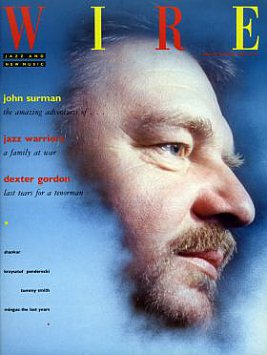
The European jazz label ECM rarely uses photos of musicians on its covers: usually they are blurry photos taken out a moving vehicle; monochromatic landscapes; eerily evocative imagery . . . They rarely have liner notes and cloak the music with an air of esoteric mystery.
There might also be a more practical reason: most jazz artists aren’t as, shall we say, photogenic as many rock musicians and would see getting dolled up for a photo-shoot as demeaning the art.
My guess is multi-instrumentalist John Surman wouldn’t shift units if he was on the his ECM covers. On his Wikipedia photo he’s wearing one of those terribly sensible jumpers with bold patterns of the kind Bill Cosby favoured. Grinnin’ John looks like a farmer down ’t local enjoying his third pint o’ scrumpy.
Yet looks can be deceiving, and Devon-born Surman has had an extraordinary career.
He started on saxophone; was in the Mike Westbrook Band in the 60s, hooked up with expat Americans Barre Phillips (bass) and Stu Martin (drums); played alongside guitarist John McLaughlin; explored free jazz on baritone and soprano sax, and bass clarinet; got into electronics and overdubbing; and by the late 70s was signed to the fledgling ECM label helmed by German producer Manfred Eicher.
Then things got interesting: in 81 he recorded a critically acclaimed duet album with drummer Jack DeJohnette, The Amazing Adventures of Simon Simon; for his solo outing Private City in 87 he played synths and various wind instruments; recorded with the likes of vocalist Karin Krog, guitarist Bill Frisell, oud player Anouar Brahem; and wrote for ballet, films, string quartets, free jazz ensembles and so on.
That scrumpy sinker from down ‘t local is an interesting guy, but has he made an “essential” album?
It’s hard to go past his duets with organist Howard Moody (Rain on the Window, 86) -- and that’s church organ not Hammond. Or his 2006 The Spaces in Between with a small ensemble. The Selected Recordings collection (2000) scooped up much of his lyrical, endlessly melodic style -- but diving in the deep end is best.
That leads you to Private City, an album of layered synths, recorders, bass clarinet and saxophones.
Okay, the synths sound locked in their period (a bit on the Vangelis side if you get my meaning) and maybe the minimalism of some sonic beds won’t be to everyone’s taste - but over the top are rippling melodic lines, earthy grabs of baritone sax, great sweeps of soprano which hint at free jazz . . .
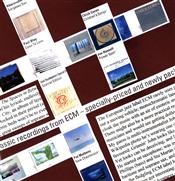 Private City is the starting place on Surman, and ECM have just made it cheap. It is one of 20 albums in its Touchstone reissue of recordings from 72-88. Others include the Bill Frisell Band’s terrific if demanding Lookout For Hope (is free jazz-country a genre?), Keith Jarrett with DeJohnette and Gary Peacock on Standards Live (85, probably essential), and early albums by ECM mainstays like Pat Metheny (American Garage), Paul Motian (Conception Vessel) and Charles Lloyd Quartet (The Call).
Private City is the starting place on Surman, and ECM have just made it cheap. It is one of 20 albums in its Touchstone reissue of recordings from 72-88. Others include the Bill Frisell Band’s terrific if demanding Lookout For Hope (is free jazz-country a genre?), Keith Jarrett with DeJohnette and Gary Peacock on Standards Live (85, probably essential), and early albums by ECM mainstays like Pat Metheny (American Garage), Paul Motian (Conception Vessel) and Charles Lloyd Quartet (The Call).
Other artists in this first batch of re-issues (in sturdy cardboard covers) include Chick Corea, John Abercrombie, Oregon, Paul Bley . . .
ECM always placed a premium on itself -- albums were high quality recordings in cool covers but you paid for that -- so this cost-cut series should take this music off the shelves and into home stereos.
Maybe that’s why John was grinnin’ down ‘t local?

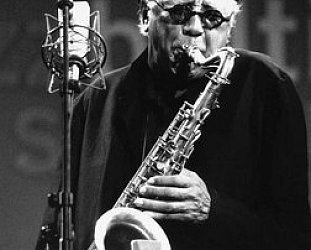


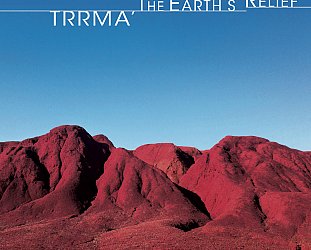
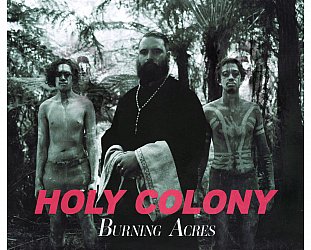
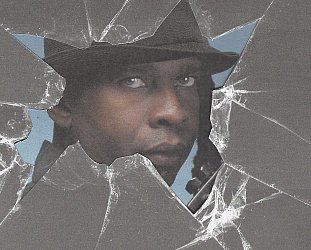
post a comment